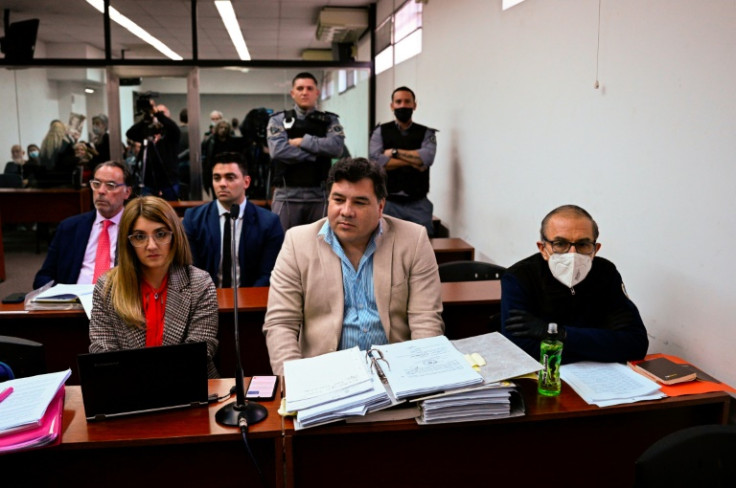Trial Opens Against Argentine Ex-policeman Accused Of Torture

A former Argentine police officer went on trial Wednesday for the alleged torture and disappearance of a young activist 46 years ago, during the South American country's last dictatorship.
Mario Sandoval, who was extradited in 2019 after a long exile in France, is suspected of taking part in the kidnapping, torture and disappearance of hundreds of people during the 1976-83 military dictatorship.
This particular case centers on such crimes apparently committed against then-24-year-old architecture student and leftwing activist Hernan Abriata in 1976.
"I am a prisoner of exception judged by a special court in a political trial," said Sandoval, 69, who proclaimed his innocence in an opening statement that lasted nearly two hours.
"All the accusations against me have the sole aim of judging me for what I was: a young federal state agent in the 1970s."
Sandoval is a former Buenos Aires police inspector who was accused of atrocities by survivors from the notorious Navy Mechanics School (ESMA), which served as the country's largest detention and torture facility.
Some 5,000 people were sent there and most disappeared, taken by airplane in "death flights" and dumped into the River Plate. Only around 100 people detained in ESMA survived.
Survivors say Sandoval, apparently given the nickname "grilled steak" for torturing prisoners tied to a metal bed frame with electricity, was particularly active in ESMA.
"It is a very long search for justice, 46 years," lawyer Sol Hourcade told AFP. "The family identified those responsible for the kidnapping. We hope for a conviction."
Abriata's family hopes Sandoval is sentenced to the maximum 25 years in jail.
"I was with Hernan when they knocked at the door," Monica Dittmar, Abriata's former partner, told AFP. She said Sandoval was the first state security agent to enter the room.
When they took Abriata away, "he showed me his credentials," Dittmar said, referring to the police officer.
Dittmar said Abriata's mother, who is 95, "is in poor health, she's losing her memory but still asks the questions: where is Hernan? What happened to Hernan? What did they do with him?"
Sandoval arrived at the court handcuffed and with his face partially hidden by a medical mask.
The first part of the proceedings was dedicated to the reading out of the charges against Sandoval, who cut a defiant figure at his trial, bringing up several points of law, insisting his rights were being infringed on and arguing against the legitimacy of the trial.
Although he was present, the judges appeared by video link, while Abriata's family members, ESMA survivors and representatives of human rights organizations followed proceedings from an adjacent room separated by a glass wall.
Carlos Loza, an ESMA survivor who shared a cell with Abriata, will testify in the trial.
Sandoval fled to France in 1985, two years after the military junta fell, and built a new life there as a defense and security consultant.
He taught at several institutions including the Sorbonne and the Institute of Higher Latin American Studies in Paris.
He was found by a student at the Sorbonne after some ex-ESMA prisoners recognized him from photos.
Sandoval was arrested at his home in the Paris suburbs.
Although he gained French nationality in 1997, Argentina successfully obtained his extradition as he was not French at the time of the alleged crimes.
Sandoval had unsuccessfully petitioned France's Council of State in a bid to prevent his extradition.
Since the prosecution of dictatorship figures resumed in 2006 after a decade of controversial amnesties, more than 1,000 people have been convicted of crimes against humanity.
Cases and investigations are ongoing against another 500 people.
© Copyright AFP 2024. All rights reserved.





















